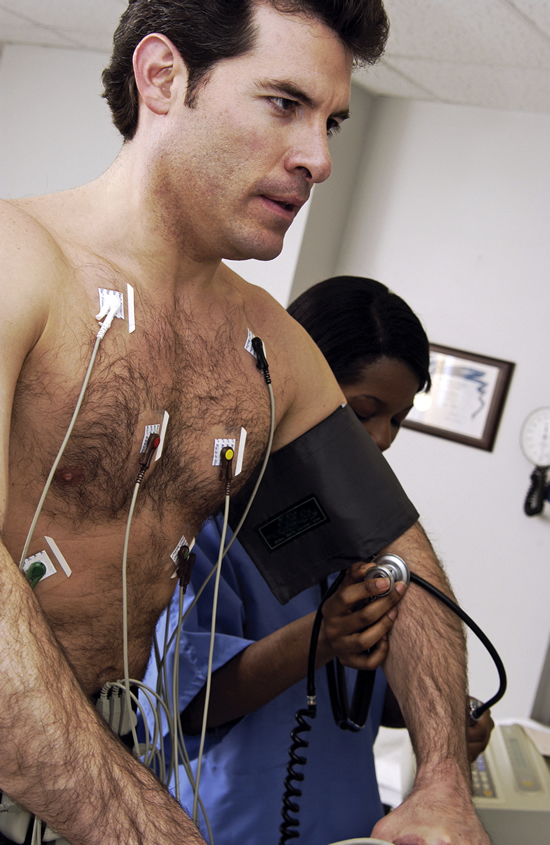

A stress test, sometimes called a treadmill test or exercise test, helps Dr. Randall find out how well your heart handles its workload. As your body works harder during the test, it requires more fuel and your heart has to pump more blood. The test can show if there’s a lack of blood supply through the arteries that go to the heart.
Taking a stress test also helps Dr. Randall know the kind and level of physical activity that’s right for you.
Dr. Randall usually will use stress testing to help diagnose coronary heart disease (CHD). They also use stress testing to find out the severity of CHD.
CHD is a disease in which a waxy substance called plaque (plak) builds up in the coronary arteries. These arteries supply oxygen-rich blood to your heart.
Plaque narrows the arteries and reduces blood flow to your heart muscle. The buildup of plaque also makes it more likely that blood clots will form in your arteries. Blood clots can mostly or completely block blood flow through an artery. This can lead to chest pain called angina or a heart attack.
You may not have any signs or symptoms of CHD when your heart is at rest. But when your heart has to work harder during exercise, it needs more blood and oxygen. Narrow arteries can't supply enough blood for your heart to work well. As a result, signs and symptoms of CHD may occur only during exercise.
A stress test can detect the following problems, which may suggest that your heart isn't getting enough blood during exercise: